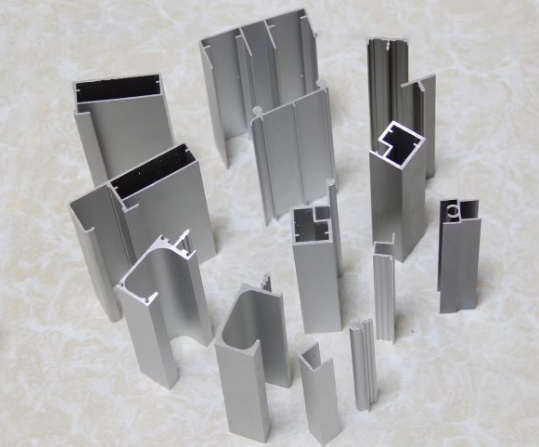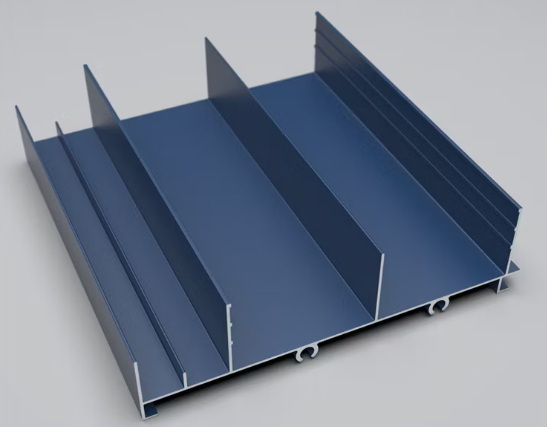English


Views: 222 Author: Tomorrow Publish Time: 2025-07-13 Origin: Site











Content Menu
● What is OEM in Aluminum Profile Manufacturing?
● Why Do Aluminum Profile Factories Offer OEM Services?
● Capabilities of Aluminum Profile Factories Providing OEM Services
>> Custom Design and Engineering
>> Quality Control and Packaging
● Industries Benefiting from OEM Aluminum Profile Services
● How to Choose an Aluminum Profile Factory for OEM Services
● The OEM Process in an Aluminum Profile Factory
● Challenges and Solutions in OEM Aluminum Profile Manufacturing
● Future Trends in OEM Aluminum Profile Manufacturing
● FAQ
>> 1. What types of aluminum alloys are commonly used in OEM aluminum profiles?
>> 2. Can aluminum profile factories produce custom shapes and sizes?
>> 3. What surface treatments are available for aluminum profiles?
>> 4. How long does it take to get OEM aluminum profiles produced?
>> 5. Do aluminum profile factories offer secondary processing services?
In today's competitive manufacturing landscape, customization and flexibility are key factors driving business success. Aluminum profiles, widely used in construction, automotive, furniture, and many other industries, require precise specifications tailored to unique project demands. This raises the question: Are aluminum profile factories offering OEM (Original Equipment Manufacturer) services? The answer is a definitive yes. Most aluminum profile factories now provide comprehensive OEM services, allowing customers to obtain custom-designed aluminum extrusions that meet their exact requirements.
This article explores the scope, benefits, and processes of OEM services in aluminum profile manufacturing, highlighting how factories cater to diverse industries and customer needs.

OEM services in aluminum profile manufacturing refer to the ability of a factory to produce aluminum extrusions and related products based on a client's custom design, specifications, and requirements. Instead of selling standard, off-the-shelf profiles, an aluminum profile factory with OEM capabilities can:
- Develop custom shapes and sizes
- Apply specific surface treatments and finishes
- Use particular aluminum alloys and temper grades
- Provide tailored packaging and delivery solutions
OEM services enable businesses to differentiate their products and optimize performance by using aluminum profiles precisely engineered for their applications.
The demand for customized aluminum profiles has surged due to the expanding applications of aluminum in various sectors. Aluminum profile factories offer OEM services to:
- Meet diverse customer needs: Different industries require unique profiles, from structural frames to decorative trims.
- Enhance product value: Customized profiles improve functionality and aesthetics.
- Stay competitive: Offering OEM services helps factories attract and retain clients who need specialized products.
- Leverage advanced manufacturing technology: Modern extrusion machines and fabrication equipment support efficient customization.
OEM services have become a standard offering among reputable aluminum profile factories worldwide.
Aluminum profile factories with OEM capabilities typically have in-house design and engineering teams. They work closely with clients to:
- Analyze technical drawings and specifications
- Suggest design improvements for manufacturability and cost-effectiveness
- Develop prototypes and samples for client approval
The design phase is critical because it ensures that the aluminum profile not only meets the functional requirements but also can be manufactured efficiently. Many factories use advanced CAD/CAM software to simulate extrusion processes and optimize the die design, reducing errors and production costs.
Most factories offer a range of aluminum alloys, especially from the 6000 series (e.g., 6063, 6061), known for excellent extrusion properties and corrosion resistance. They also provide various temper options (T3 to T8) to meet strength and flexibility requirements. Some factories can also work with other alloy series depending on the application, such as 7000 series for high-strength needs or 1000 series for excellent corrosion resistance.
Choosing the right alloy and temper is essential to ensure the aluminum profile performs well under the intended mechanical and environmental conditions.
Surface finishing is crucial for both aesthetics and durability. Aluminum profile factories can apply multiple treatments, including:
- Anodizing (to enhance corrosion resistance and add color)
- Powder coating (for a durable, decorative finish)
- Polishing and buffing (for mirror-like surfaces)
- Wood grain printing (to mimic wood appearance)
- Electrophoresis and sandblasting
These options allow clients to select finishes that suit their product's environment and design goals. For example, anodized profiles are popular in outdoor architectural applications due to their enhanced weather resistance, while powder coating offers a wide color range and improved scratch resistance.
Beyond extrusion, many aluminum profile factories offer secondary processing such as:
- Cutting to custom lengths
- Punching holes or slots
- Bending or folding
- Welding or assembly
This integrated approach streamlines production and reduces lead times. Some factories also provide CNC machining services to add complex features or to achieve tight tolerances required by certain industries.
OEM aluminum profile factories maintain strict quality control protocols to ensure profiles meet dimensional tolerances and mechanical properties. This includes:
- Dimensional inspection using coordinate measuring machines (CMM)
- Mechanical testing for tensile strength, hardness, and elongation
- Surface finish inspections for uniformity and defects
Customized packaging solutions protect products during shipping and handling, especially for delicate or high-value profiles. Packaging can be tailored to client requirements, including branded labels, protective films, and specialized crates.

- Construction: Customized window frames, curtain walls, structural components, and decorative trims are common applications. Aluminum profiles provide lightweight strength and corrosion resistance, making them ideal for modern building designs.
- Automotive: Lightweight frames, trim, heat sinks, and structural reinforcements benefit from custom aluminum profiles that reduce vehicle weight and improve fuel efficiency.
- Furniture: Modular office partitions, cabinetry handles, and decorative trims can be precisely tailored to design aesthetics and functional requirements.
- Electronics: Heat dissipation profiles and enclosures require precise dimensions and surface treatments to ensure effective thermal management.
- Lighting: Fixtures and mounting systems with specific profiles and finishes enhance both functionality and visual appeal.
The versatility of aluminum profiles combined with OEM services enables manufacturers in these industries to innovate and improve product performance.
When selecting an aluminum profile factory to provide OEM services, consider the following factors:
- Experience and reputation: Look for factories with proven OEM expertise and positive client feedback.
- Manufacturing capabilities: Ensure they have advanced extrusion machines and surface treatment facilities.
- Customization flexibility: Confirm they can handle your specific alloy, size, and finish requirements.
- Quality management: Check for certifications like ISO 9001 and quality control processes.
- Communication and support: Effective collaboration is essential for successful OEM projects.
- Lead times and pricing: Balance cost with delivery schedules to meet your project timelines.
Visiting the factory or requesting samples can help verify their capabilities and build trust.
1. Requirement Gathering: Clients provide drawings, specifications, and desired finishes.
2. Feasibility Study: The factory reviews the design for manufacturability and suggests improvements.
3. Quotation and Agreement: Pricing, lead times, and terms are finalized.
4. Tooling and Prototyping: Custom extrusion dies are created, and samples produced for client approval.
5. Mass Production: Upon approval, full-scale production begins.
6. Quality Inspection: Profiles undergo dimensional and mechanical testing.
7. Packaging and Delivery: Customized packaging is applied, and products shipped.
This structured process ensures that OEM aluminum profiles meet client expectations precisely. Good communication throughout the process is vital to address any design changes or production issues promptly.
- Complex designs: Some profiles require intricate dies and precise extrusion parameters. Experienced factories use advanced CAD/CAM tools and simulation software to optimize design and ensure smooth production.
- Material sourcing: High-quality aluminum alloys must be sourced consistently. Trusted factories maintain strong supplier relationships and often stock common alloys to reduce lead times.
- Surface finish consistency: Achieving uniform anodizing or powder coating requires controlled environments and skilled operators. Factories invest in modern finishing lines and rigorous quality checks to maintain standards.
- Lead time management: Custom tooling can extend lead times. Factories mitigate this by maintaining flexible production schedules, using rapid prototyping, and sometimes offering expedited services.
- Cost control: Custom profiles can be expensive due to tooling and processing. Factories work with clients to optimize design and material usage to balance performance and cost.
The aluminum extrusion industry is evolving with technological advancements and changing market demands. Some emerging trends include:
- Smart manufacturing: Integration of Industry 4.0 technologies such as IoT sensors and data analytics to monitor extrusion processes in real time, improving quality and efficiency.
- Sustainable practices: Increased use of recycled aluminum and eco-friendly surface treatments to reduce environmental impact.
- Lightweighting: Continued development of high-strength aluminum alloys to replace heavier materials in automotive and aerospace sectors.
- Advanced finishes: New coating technologies that provide enhanced durability, anti-microbial properties, or aesthetic effects.
- Customization at scale: Factories are adopting modular tooling and flexible manufacturing systems to offer OEM services with faster turnaround and lower costs.
These trends will further enhance the value and capabilities of OEM aluminum profile factories.
Aluminum profile factories widely offer OEM services, enabling customers to obtain highly customized aluminum extrusions tailored to their specific needs. These services encompass custom design, alloy selection, surface finishing, fabrication, and quality assurance. OEM capabilities allow industries such as construction, automotive, furniture, and electronics to leverage aluminum's versatility and performance advantages. When choosing an aluminum profile factory for OEM services, it is crucial to consider experience, manufacturing capabilities, quality control, and customer support. The OEM process, while complex, delivers significant value through tailored solutions that standard profiles cannot provide. Ultimately, aluminum profile factories with robust OEM services play a pivotal role in advancing product innovation and meeting the evolving demands of global markets.

Most aluminum profile factories use 6000 series alloys, such as 6063 and 6061, due to their excellent extrusion characteristics, corrosion resistance, and mechanical properties. These alloys can be tempered from T3 to T8 to meet different strength requirements.
Yes, the core of OEM services is the ability to manufacture aluminum profiles in custom shapes and sizes based on client designs. Factories create custom dies to extrude profiles that meet precise dimensional and functional specifications.
Common surface treatments include anodizing, powder coating, polishing, wood grain printing, electrophoresis, and sandblasting. These treatments enhance corrosion resistance, aesthetics, and durability.
Lead times vary depending on tooling requirements and order size but typically range from 20 to 60 days. Initial prototyping and die-making can take longer, while repeat orders are faster.
Yes, many factories provide additional services such as cutting, punching, bending, welding, and assembly to deliver ready-to-use components tailored to customer needs.
Stainless Steel Pipes Vs Galvanized Pipes: Durability And Cost Analysis
Comparing Stainless Steel Pipes And PVC Pipes: What You Need To Know?
Stainless Steel Pipes Vs Copper Pipes: Pros And Cons for Industrial Use
Seamless Stainless Steel Pipes Vs Welded Pipes: Key Differences Explained
Stainless Steel Pipes Vs Carbon Steel Pipes: Which One Suits Your Project?
Stainless Steel Sheets Vs Galvanized Steel Sheets: Pros And Cons Compared
Stainless Steel Sheets Vs Aluminum Sheets: Which One Suits Your Project?
Cold Rolled Vs Hot Rolled Stainless Steel Sheets: Key Differences Explained
How To Choose Stainless Steel for Industrial Guardrails And Railings?
